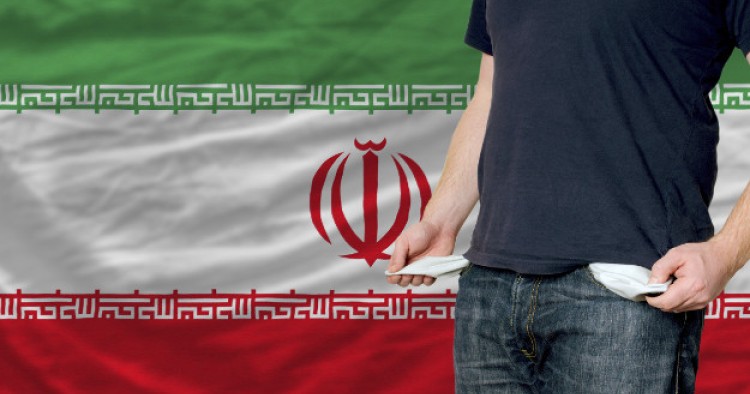First Vice-President Eshaq Jahangiri has warned that soaring unemployment has become Iran’s “biggest challenge” and revealed that a staggering number of 500,000 Iranians are annually added to the list of those already without jobs in the country. President Hassan Rouhani’s vice president explained that 1,200,000 Iranians annually seek employment while the government has the capacity to only create 700,000 new jobs. Jahangiri also claimed that the net rate of job creation at the beginning and end of former President Mahmoud Ahmadinejad's two terms in office was zero.
The revelation by Jahangiri comes just days after Pervez Fatah, the head of Iran’s Imam Khomeini Relief Committee, announced that an estimated 11 million Iranian live below the poverty line in the country.
Comment: The latest unemployment and poverty figures provided by Iranian officials are further evidence of the fact that ordinary Iranians have not benefited from the lifting of most nuclear-related international sanctions on Iran in January 2016.
Iran has the second largest population in the Middle East and North Africa region, with an estimated 78.8 million people in 2015. And given that 60 percent of its population is under the age of 30, rising youth unemployment is a particularly major challenge for the regime.
While Iranian leaders argue that existing unilateral U.S. sanctions and unwillingness by major international companies to invest in Iran have hindered a speedy recovery of the country’s stagnant economy, the regime’s endemic corruption and mismanagement as well as rising expenditures on military and defense programs and foreign wars are the real culprit.
Although statistics provided by the Rouhani government shows a significant drop in inflation rate, many inside Iran question the figures and complain about soaring prices of food and public services and their declining purchasing power. Iranians’ growing economic problems are the main reason President Rouhani’s popularity is on a rapid decline as he is seeking reelection in May.
The Middle East Institute (MEI) is an independent, non-partisan, non-for-profit, educational organization. It does not engage in advocacy and its scholars’ opinions are their own. MEI welcomes financial donations, but retains sole editorial control over its work and its publications reflect only the authors’ views. For a listing of MEI donors, please click here.













